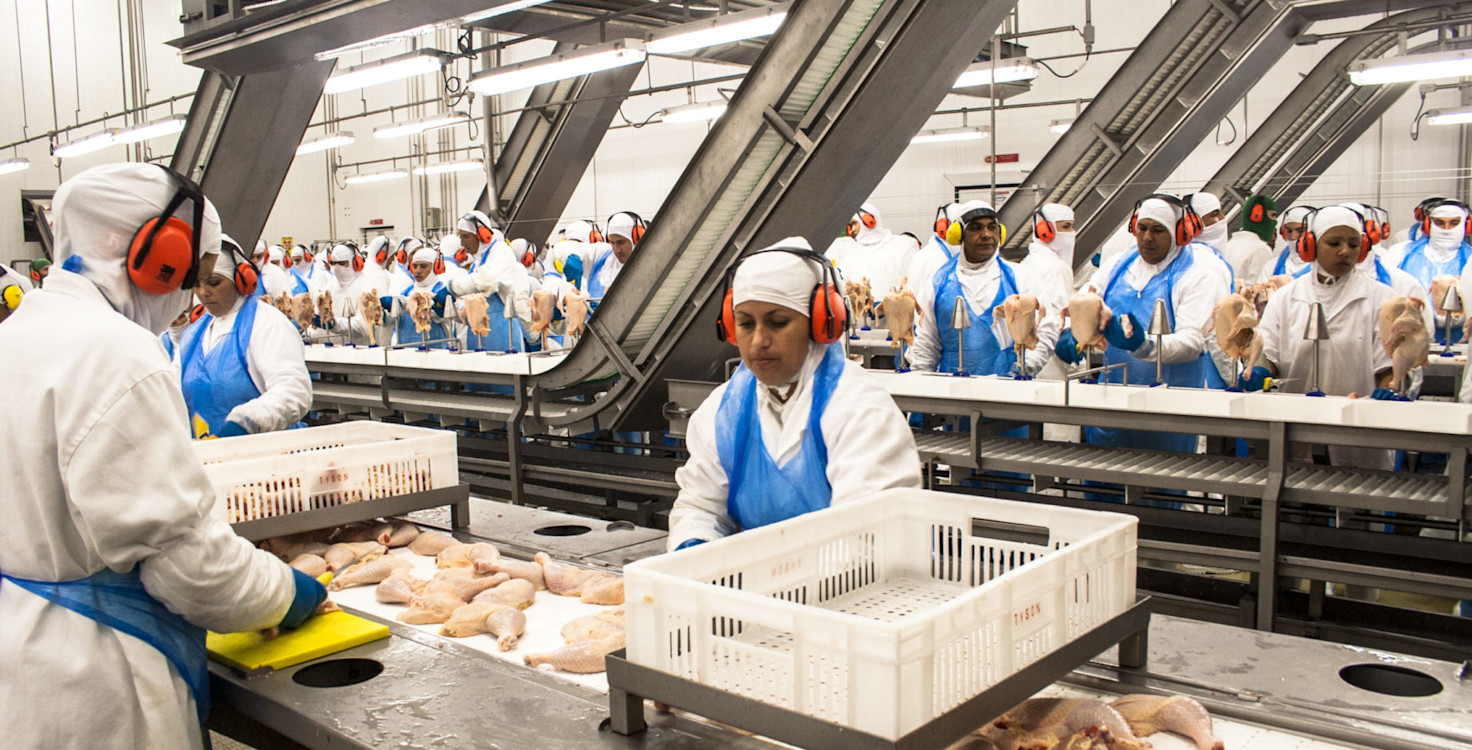“A meat shortage does not equal a food shortage”
Jeremy Coller, Founder, FAIRR Initiative
COVID-19 has thrust ESG issues front and centre. Not only is food going to waste, but we are now hearing numerous stories about unsanitary working conditions and inadequate safety standards throughout the livestock industry. Meat processing facilities are rapidly becoming coronavirus hotspots and the supply chain is facing severe disruption. With slaughterhouses suspending operations and farmers incapable of housing the livestock backlog, animals are being “depopulated” in their droves. Both the financial and environmental costs are significant and yet, they continue to rise.
“It is too early to tell what the long-term consequences of COVID-19 will be on the animal protein industry, but it is likely that closed facilities are just the start of a bigger impact across the entire protein supply chain.”
Maria Lettini, Executive Director of the FAIRR Initiative
Working conditions at meat processing plants have now come under scrutiny, exposing a variety of labour risks. Whilst the FAIRR Initiative has long sought to address these issues, our present-day reality has proven to be a poignant reminder, not only of the meat sector’s fragility but of the importance of incorporating ESG considerations into investment decisions. The Coller FAIRR Protein Producer Index is a vital resource for this, enabling investors to evaluate these companies’ track records across a range of KPIs, including those focused on human rights, safe and fair working conditions, and the employees’ right to freedom of association.
For too long, the meat processing industry has focused on profit margins above all else, while failing to fully address ESG concerns, be that with regard to animals, workers or the environment. Workers, in particular, are often paid low-wages whilst having to toil away on ever-increasing line speeds. As one Guardian article states: “Covid-19 reveals the costs to workers crowded together under already dangerous working conditions in jobs that often [lack] sick leave and healthcare benefits.”
Moreover, the current pandemic is demonstrating that these issues have severe knock-on effects for people and society, and Western economies are anything but immune. The only means by which we can slow the spread of the virus is by maintaining social distancing, yet this is nigh-on-impossible for most meat factory workers. Asymptomatic carriers cannot know when to self-isolate and will continue to work in close proximity in gruelling, high-speed production facilities.
As a consequence, we are repeatedly hearing about new outbreaks at these facilities– something that is especially common in countries with a highly consolidated meat supply chain (e.g., Ireland, Spain, Germany, Australia, Canada, Brazil and the UK). In the US, for example, Smithfields was forced to close after its employees accounted for 40% of all new cases in just one town; Germany reported 300 cases at the Müller Fleisch plant in Birkenfeld, and a Cargill-owned facility in Canada saw 949 new infections: currently the largest outbreak within a single facility.
Whilst PR savvy companies in the developed world may have a plethora of ethical policy aims regarding employee rights, the proof of the pudding is in the eating. And what COVID-19 has revealed is that when it comes down to it, few corporate leaders are willing to stand by their promises.
In fact, a group of meatpacking workers has recently taken Smithfield to court, citing a variety of health hazards and a failure to take action to protect workers during the pandemic. These workers claim that they have been prohibited from cleaning their faces or covering their mouths while coughing as this reduces productivity. An article in The New York Times pays heed to the plight of these workers after one individual felt compelled to use Tylenol to lower her temperature enough to pass a company screening, afraid that missing work would mean forgoing a bonus.
Simply put, working conditions remain unsafe and current policies does not encourage good practice. As Jeremy Coller stated in his response to last month’s executive order from President Trump:
“The large, closed, confined spaces of factory farms and meat processing facilities are fertile breeding grounds for the emergence of zoonotic diseases such as coronavirus – affecting both animals and food system workers. Yet instead of taking this opportunity to tackle that problem at source, and foster change in the animal agriculture sector, the President’s decision offers nothing more than a band-aid for the US food supply chain.”
FAIRR insights are written by FAIRR team members and occasionally co-authored with guest contributors. The authors write in their individual capacity and do not necessarily represent the FAIRR view.
